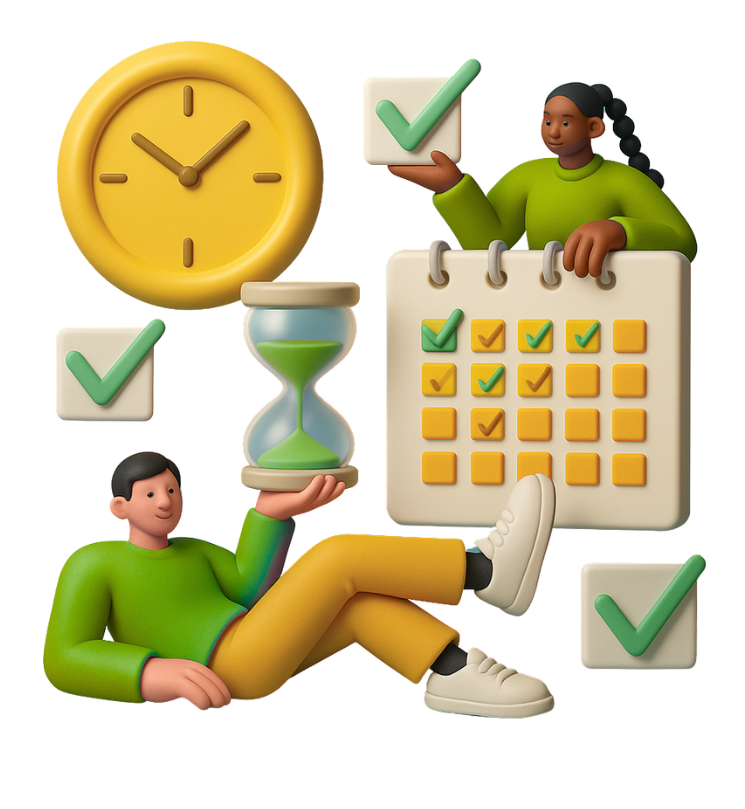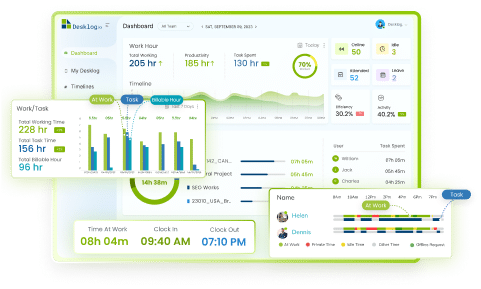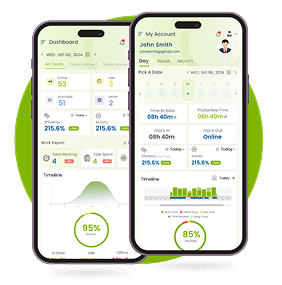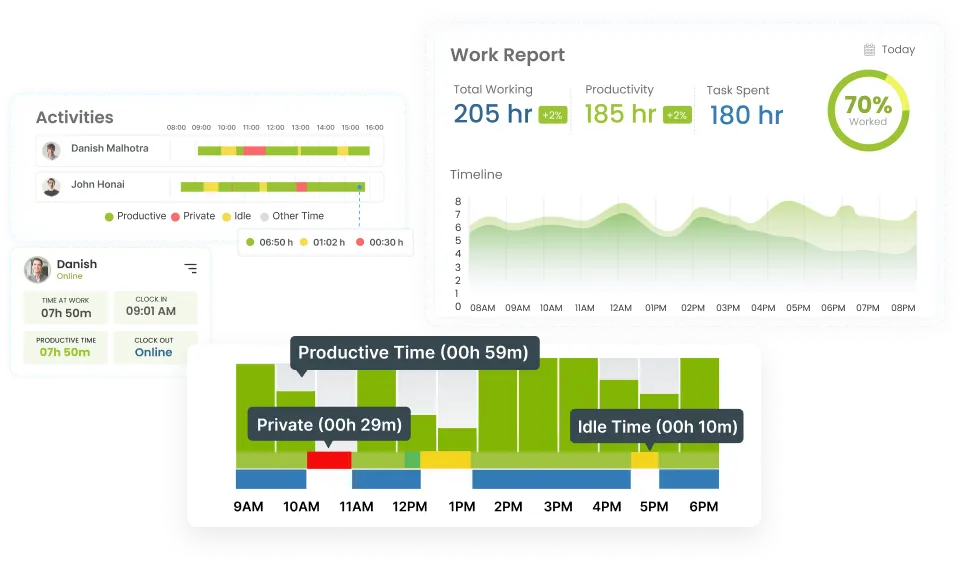The Psychology Behind Time Tracking: How Tracking Your Time Impacts Productivity
At first glance, time tracking seems like a tactical tool. Great for billing clients, staying on schedule, or keeping teams aligned. But there’s something deeper happening behind the scenes when you start measuring your time.
It turns out, the very act of tracking time can change your behavior. Why? Because of how our brains respond to measurement, accountability and visibility.
How? Well, read on. In this post, we’ll look into the interesting psychology behind why time tracking improves employee productivity!


Awareness Is the First Step Toward Improvement
Have you ever said, “I didn’t get anything done today,” only to realize later that you spent hours bouncing between low-value tasks? That’s your brain’s idea of time, not the real story.
Time tracking enables you to clearly view where your time actually goes. It takes your workday from something you vaguely remember into something you can see, measure and learn from.
Why it matters:
- ✓ You spot patterns you weren’t aware of.
- ✓ You identify time-wasting behaviors.
- ✓ You gain control over how you allocate your energy.
With Desklog’s automated time tracking, you can eliminate the hassle of manually logging hours while ensuring every second is accounted for.
Features like clock-in/out tracking, idle time detection, and offline time tracking provide a complete and accurate picture of both productive and unproductive hours with no guesswork involved.

Specific Data Drives Specific Action
Saying “I want to be more productive” is like saying “I want to eat healthier.” It’s a good goal, but without specifics, it doesn’t stick.
Now imagine this: after tracking your time for a week with Desklog, you discover you’re spending 3 hours a day in meetings, but only 90 minutes doing focused work. Suddenly, your goal becomes clearer: “Cut meetings by 30% and create two hours of deep work time daily.”
So much simpler, isn’t it?
Real data enables:
- ✓ Better time budgeting
- ✓ Smarter prioritization
- ✓ Quantifiable goals (instead of vague intentions)
Desklog’s automated project tracking makes this easier by allowing you to allocate time to specific tasks and projects. With subtask management, you get precise oversight of your projects, complete with real-time progress tracking and project estimates to ensure deadlines are met.

The Hawthorne Effect: Why Measurement Alone Improves Behavior
There’s a fascinating psychological phenomenon known as the Hawthorne Effect. It describes how people change their behavior simply because they know they’re being observed.
Even if no one else is watching, tracking your own time creates a subtle sense of accountability. You’re more likely to stay focused, less likely to multitask and more conscious of procrastination.
Desklog’s activity tracking feature supports this effect by tracking keyboard strokes, mouse movements,application and website usage, and even optional screenshots. All these features help promote transparency and productivity without being intrusive.

Time Leaks Are Everywhere (Until You Spot Them)
Modern work culture is full of tiny time drains:
- ✓ Unnecessary meetings
- ✓ “Quick” email checks
- ✓ Social media breaks disguised as “breathers”
These distractions often go unnoticed until you track them. Time tracking brings these habits into the light and once you see them, you can change them.
For example, Desklog might reveal that you spend an average of 2 hours a day responding to messages across different tools. With that insight, you could batch communication into two daily windows and reclaim up to 10 hours a week.

Small Tweaks Create Big Results
Here’s the best part: You don’t need a full productivity overhaul to benefit from time tracking. Small changes, made consistently, compound over time.
A few examples:
- ✓ Reducing 10 minutes off a recurring meeting
- ✓ Starting your day with a 90-minute focus block
- ✓ Reducing context switching by grouping similar tasks
All of these micro-adjustments start with one thing: measurement.

The Takeaway: Measurement Is a Form of Mindfulness
At its core, time tracking is about more than numbers. It’s about being mindful of how you spend your most valuable resource- your time.
No matter the profession, building a habit of time tracking can help you:
- ✓ Work more efficiently
- ✓ Make better decisions
- ✓ Reduce employee burnout
- ✓ Focus on what matters most
All of these micro-adjustments start with one thing: measurement.
Final Thoughts
Time tracking isn’t just a productivity hack. It’s a psychological tool that helps you understand yourself better.
By making your time visible, you gain the power to change how you use it. And over time, those changes can lead to more meaningful, focused, and fulfilling work.
With Desklog’s all-in-one time and activity tracking capabilities, you have a powerful partner in making every moment count.
















